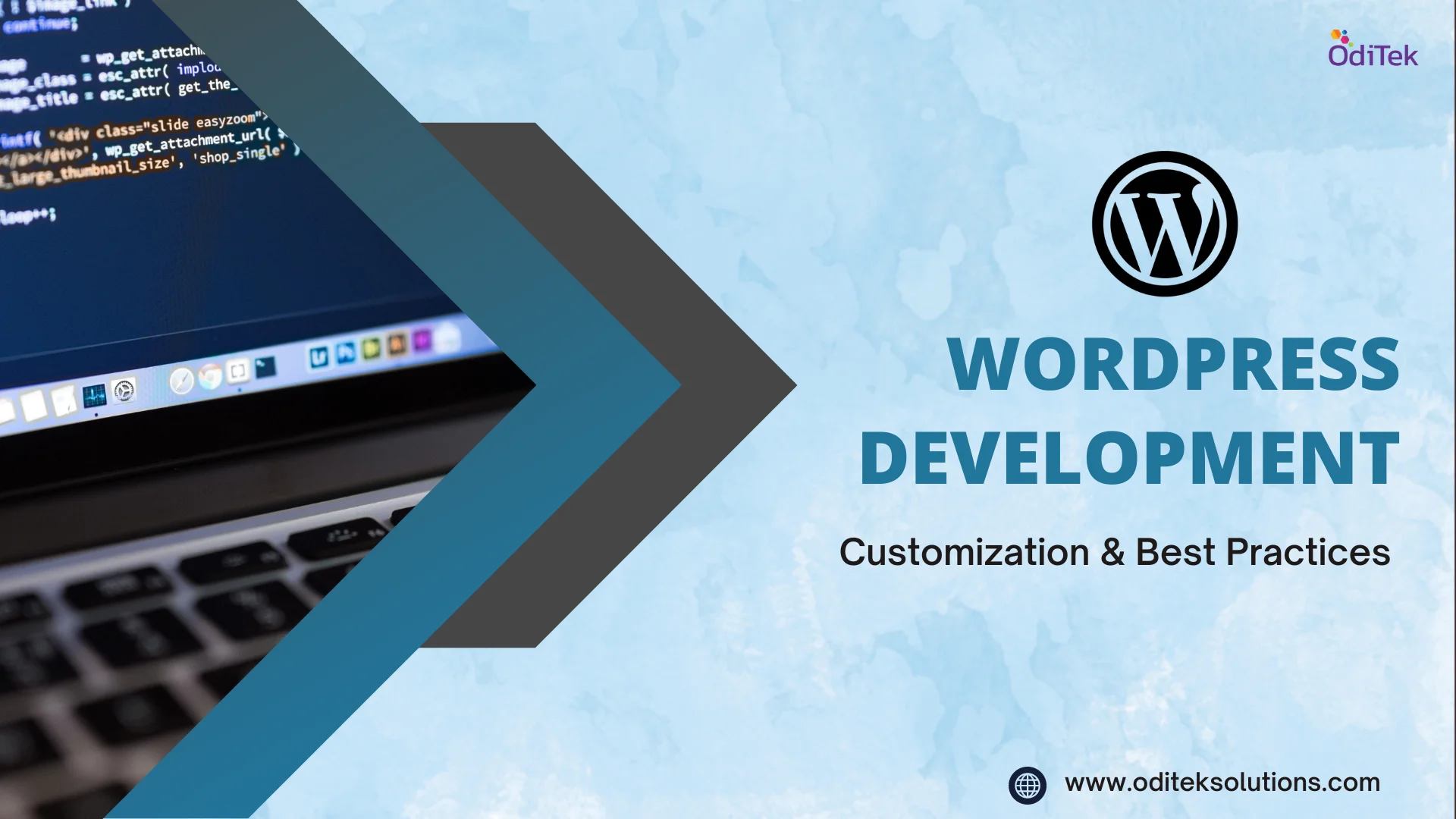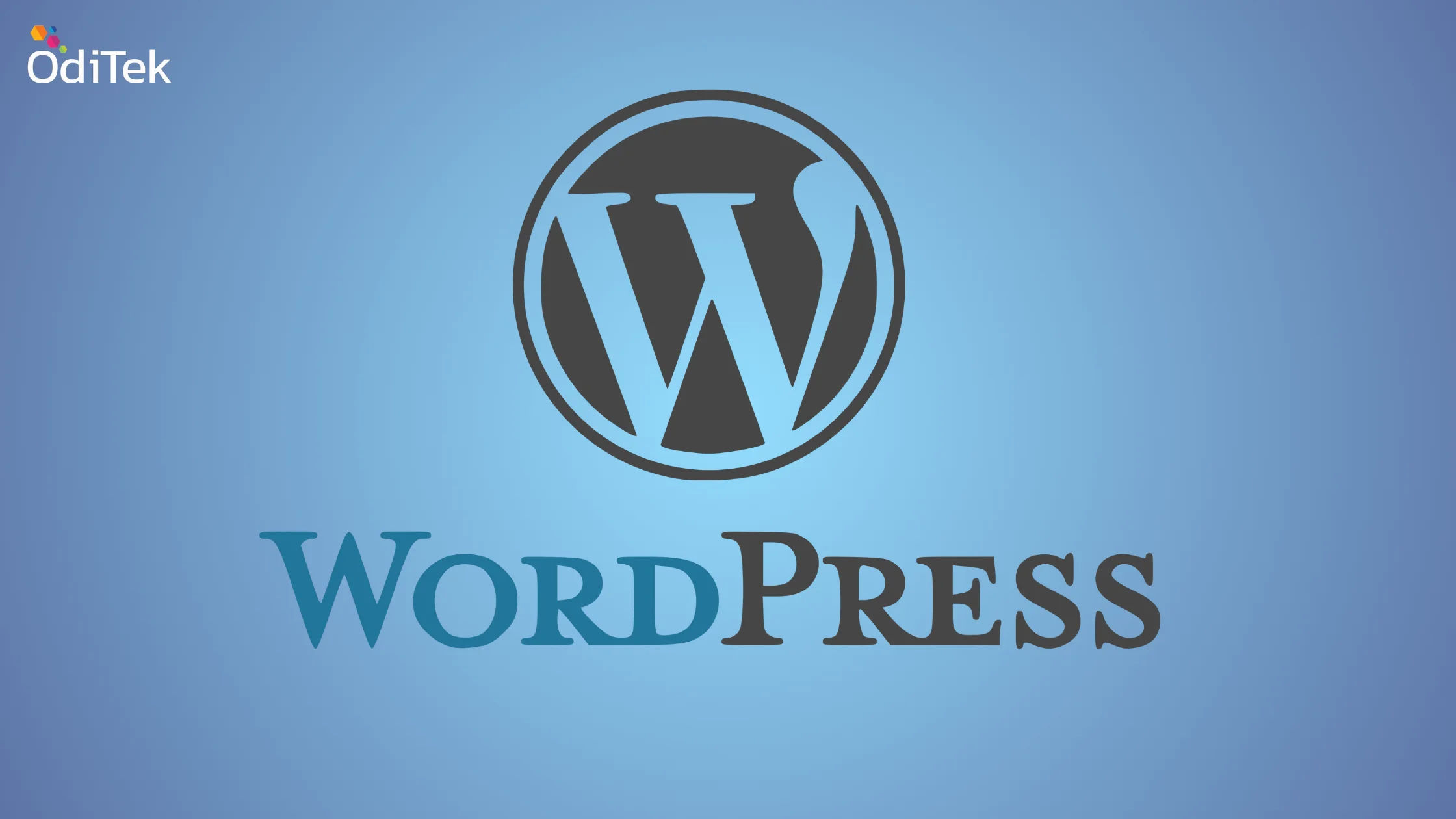WordPress has transformed from a simple blogging platform into a robust content management system (CMS) that powers millions of websites worldwide. Its flexibility, extensive plugin ecosystem, and user-friendly interface make it a preferred choice for businesses of all sizes. Whether you’re a developer looking to push the boundaries of what WordPress can do, or a business owner aiming to create a customized online presence, mastering WordPress development is essential.
In this blog, we’ll explore the key aspects of WordPress development, from basic customization to advanced techniques, and discuss how OdiTek, as a leading WordPress development company, can help you achieve your online goals.
Understanding WordPress Development
WordPress Development involves creating, managing, and optimizing websites using the WordPress platform. It’s more than just setting up and configuring WordPress; it includes customizing themes, developing plugins, and extending WordPress functionalities to meet specific needs. WordPress development requires coding knowledge, an understanding of the WordPress ecosystem, and the ability to effectively leverage existing resources like themes and plugins.
One of the major strengths of WordPress is its open-source nature, which allows developers to access and modify the core codebase. This flexibility is what makes WordPress so powerful, enabling the creation of highly customized and functional websites tailored to specific business requirements. At OdiTek Solutions, our team of skilled developers harnesses this flexibility to deliver tailored WordPress solutions that align perfectly with your business goals.
Customizing WordPress: The Basics
To customize WordPress, the process often begins with selecting a suitable theme. Themes control the visual appearance and layout of a WordPress site, and there are thousands available, both free and premium. However, choosing a theme is just the start. Customization can range from simple changes like adjusting colors and fonts to more complex tasks such as modifying the layout or adding custom functionality.
Child Themes
Creating a child theme is a recommended practice when customizing a WordPress theme. A child theme inherits the functionality and styling of the parent theme but allows developers to make modifications without altering the original theme files. This ensures that updates to the parent theme don’t override your customizations.
Custom CSS
For simpler customization, developers can use custom CSS (Cascading Style Sheets) to tweak the appearance of a site. WordPress includes a built-in customizer that allows you to add custom CSS without the need for an external editor.
Custom Widgets and Menus
Customizing widgets and menus is another way to enhance the functionality of a WordPress site. Widgets are small content blocks that can be added to specific areas of a site, such as sidebars or footers, while menus provide easy navigation for users. WordPress allows developers to create custom widgets and menus, offering greater flexibility in how content is presented.
Advanced WordPress Customization Techniques
For those looking to go beyond basic customization, advanced WordPress customization techniques allow for deep modification and extension of WordPress functionality. These techniques often require a deeper understanding of WordPress’s core architecture and coding skills, particularly in PHP, HTML, CSS, and JavaScript.
Custom Post Types and Taxonomies
WordPress comes with default post types like posts and pages, but sometimes, a website may require additional content types such as portfolios, testimonials, or products. Custom post types allow developers to create new content types tailored to the site’s needs. Similarly, custom taxonomies can be created to organize and classify content beyond the default categories and tags.
Custom Fields and Meta Boxes
Custom fields and meta boxes allow developers to add additional metadata to WordPress posts, pages, and custom post types. This is particularly useful for adding specific information, such as product details in an e-commerce site or client testimonials in a portfolio. Tools like Advanced Custom Fields (ACF) make it easier to create and manage custom fields without extensive coding.
Theme Development and Customization
Developing a custom theme from scratch provides complete control over the design and functionality of a WordPress site. This is an advanced technique that requires a solid understanding of WordPress’s theme hierarchy and the loop, which is the code WordPress uses to display posts.
Plugin Development
WordPress’s functionality can be greatly extended through plugins, which are small pieces of software that add specific features or capabilities to a site. While there are thousands of plugins available in the WordPress repository, developing custom plugins allows for the creation of unique features tailored to specific needs. This could range from a simple contact form to a complex membership system.
Customizing the WordPress REST API
The WordPress REST API allows developers to interact with WordPress from external applications, enabling the creation of headless WordPress sites or mobile apps that pull content from WordPress. Customizing the REST API can involve creating custom endpoints or modifying existing ones to suit the needs of the application.
Essential WordPress Development Techniques
Successful WordPress development relies on a set of core techniques that ensure your website is not only functional but also secure, performant, and scalable. Here are some key techniques to consider:
Version Control
Using version control systems like Git is crucial for managing changes to your codebase. It allows you to track modifications, collaborate with other developers, and revert to previous versions if something goes wrong.
Responsive Design
With a significant portion of web traffic coming from mobile devices, ensuring that your WordPress site is responsive is essential. This involves using fluid grids, flexible images, and CSS media queries to ensure your site looks and functions well on all screen sizes.
Performance Optimization
A slow website can negatively impact user experience and search engine rankings. Techniques like caching, image optimization, and minifying CSS and JavaScript files can significantly improve the performance of your WordPress site.
Security Best Practices
WordPress is a popular target for hackers due to its widespread use. Implementing security best practices, such as using strong passwords, keeping themes and plugins updated, and regularly backing up your site, is crucial for protecting your site from threats.
SEO Optimization
Optimizing your WordPress site for search engines involves more than just installing an SEO plugin. Techniques like optimizing site speed, using proper heading structures, and ensuring mobile-friendliness are all part of a comprehensive SEO strategy.
How OdiTek Can Help with WordPress Development
At OdiTek Solutions, we understand that every business has unique needs and goals. Our WordPress development services are designed to provide you with a tailored solution that aligns perfectly with your business objectives. Here’s how we can help:
Custom WordPress Solutions
Whether you need a simple blog, a complex e-commerce site, or a custom web application, our team has the expertise to develop a WordPress solution that fits your requirements. We take the time to understand your business, industry, and target audience, ensuring that your website is not just functional but also a powerful tool for achieving your goals.
Advanced Customization
Our advanced customization services enable you to extend the functionality of your WordPress site beyond the basics. From custom themes and plugins to REST API integration and beyond, we have the skills and experience to deliver a site that stands out and performs.
Ongoing Support and Maintenance
WordPress is a dynamic platform that requires regular updates and maintenance to keep your site secure and performing at its best. OdiTek Solutions offers ongoing support and maintenance services to ensure that your site is always up to date, secure, and optimized.
SEO and Performance Optimization
A beautiful website is only effective if it can be found by your audience. Our team incorporates SEO best practices and performance optimization techniques to ensure that your WordPress site ranks well in search engines and provides a fast, seamless experience for your users.
Conclusion
WordPress development offers endless possibilities for creating and customizing websites that meet specific business needs. At OdiTek Solutions, we combine our expertise in WordPress with a deep understanding of our clients’ industries to deliver tailored solutions that drive business success. Whether you need to customize WordPress, implement advanced functionality, or simply ensure your site is secure and optimized, our team is here to help.
Partner with OdiTek Solutions and let us take your WordPress website to the next level.







